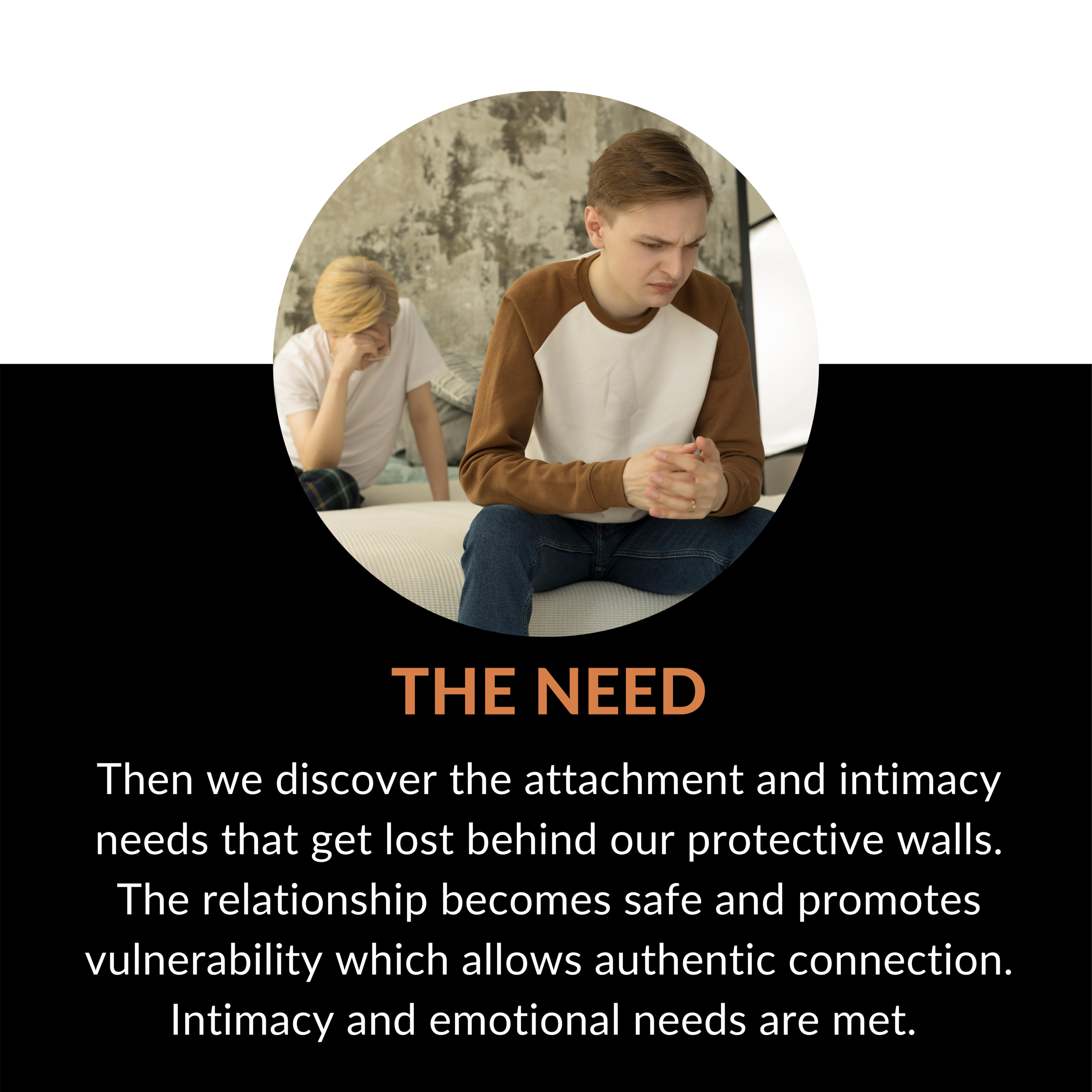A CONFLICTED RELATIONSHIP IMPACTS ALL AREAS OF
OUR LIFE. BUT A HEALTHY RELATIONSHIP IS ONE OF THE
STABILIZING FORCES WE CAN HAVE AS HUMANS HAVE.
DO YOU WANT YOUR RELATIONSHIP TO
RELATIONSHIP COACHING
We all want to find connection, a space to be vulnerable, and a place to be truly seen. We hope to find that in our partners. But when the same wounding patterns occur, we build walls, instead of connection. The countless situations we’ve gone through create a narrative that we tell ourselves every time we fight with our partner.
I don’t matter
I am invisible
I am not good enough
I always get it wrong
When we encounter these tender spaces without a sense of connection we get protective and reactive. When our partner is in this same space they respond in the same way. Both prepare for battle.
When we encounter these tender spaces in safe and connected intimacy, we grow closer and find out that this inner voice gets it wrong. Instead we find what we long to know in our relationships.
I am loved
I matter
I am valued
To cultivate a healthy relationship with our partner, we must be willing to accept the hard reality that the ways we perceive our partner or interpret their motivations can be wrong. Instead of seeing slights, we must see their hurts, vulnerability, and deep relationship needs and respond to these needs.
When both partners can see the deep needs of the other and can learn to meet those needs for connection, the fights that once created disconnection can cultivate an authentic, meaningful, and intimate relationship.
Why do we feel so distant when we want to feel close?
Couples crave intimacy and connection from their partner but feel like there is junk in the way that keeps them separated from that connection. The past hurt leaves us expecting another hurtful encounter. Both members of the couple keep walls up and are self-protective. We cannot be vulnerable with walls up. We are not available to offer or receive authentic connection without vulnerability. We have to let down the guard to connect, and that is terrifying.
Why does everything become such a huge fight?
Over time, we develop beliefs about our partner, ourselves, and the relationship that are reinforced through our perceptions of our partner and how we interpret their behavior. We are primed and quick to respond to slights, to hold on to the pain caused by past slights, and live with the anticipation of the next slight. Arguments erupt out of the most benign situations because even they becomes proof of the belief we hold.
What does that cycle look like?
He walks into the room. He is on his phone and doesn't acknowledge her.
Does it even matter if I’m here? Her insecurities answer, I don't matter to him. She doesn’t feel cherished by him. Her insecurities begin to swirl around her bringing the familiar hurt. She hates feeling hurt and small. She’d rather be strong instead and protect her vulnerable heart, so the walls come up. She gets mean when she’s feeling protective – it keeps her safe.
She snaps at him.
"What did I do this time?" He feels constantly criticized. He believes that she doesn’t respect him. He sees her walls come up and the familiar fangs come out. I can't do anything right, anyway. He feels worthless. He is protective of his vulnerability, too. When he is feeling small he focuses on self-preservation. He detaches, shuts down, and pulls away.
He snaps back at her.
They are off in a familiar cycle-- Growing more angry, and more withdrawn, with each round.
DOES THIS SOUND
FAMILIAR?
FREQUENTLY ASKED QUESTIONS
Can we repair after infidelity?
Relationships do repair after infidelity. Recovering from an affair requires reestablishing trust and cultivating the deep, intimate connection that was missing prior to the affair. Your relationship can recover and thrive.
What about trauma?
It is always trauma. From horrific experiences that undermine our safety in the world and relationships to subtle messages that impede our ability to trust. Our trauma plays out—and heals— in relationship.
What about pre-marital coaching?
Identifying the pattern early prevents creates connection rather than disconnection. Developing healthy communication about money, family planning etc. early helps set up a thriving marriage.
Can we improve our sex life?
A couple’s sex life is a reflection of their relationship. Emotional connection correlates with a desire for, frequency of, and satisfaction with sex. As intimacy increases, your sex life will improve.
















